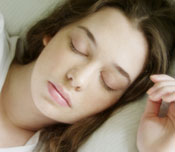 The results are positive, but poor study design makes it impossible to conclude it’s beneficial.
The results are positive, but poor study design makes it impossible to conclude it’s beneficial.
First, the details.
- The methodological quality of studies was assessed using the modified Jadad score.
- The acupuncture procedure was appraised by the STRICTA criteria.
- 20 studies of traditional needle acupuncture were identified for review.
And, the results.
- Most studies concluded that traditional needle acupuncture was significantly more effective than benzodiazepines for treating insomnia (91% vs 75%, respectively).
- 2 more appropriately conducted trials reported that traditional needle acupuncture was more effective in improving sleep than sleep hygiene counseling and sham acupuncture.
- Standardized and individualized acupuncture were similarly effective.
The bottom line?
The authors concluded, “Despite these positive outcomes, there were methodological shortcomings in the studies reviewed, including imprecise diagnostic procedure, problems with randomization, blinding issues, and insufficient safety data. Hence, the superior efficacy of traditional needle acupuncture over other treatments could not be ascertained.”
But if the studies are flawed, then any conclusion about the effectiveness of traditional acupuncture, not just how it compares to other treatments, is in doubt.
A 2007 Cochrane review written by some of the same authors came to a similar conclusion. “Poor methodological quality and significant clinical heterogeneity, means that the current evidence is not sufficiently extensive or rigorous to support the use of any form of acupuncture for the treatment of insomnia.”
3/24/09 20:07 JR